Establishing O.R.P. Quartet is Kayvan Mirhadi’s latest activity as a guitarist, composer and conductor of Kamerata Orchestra. Besides working with this Quartet, Mirhadi is busy these days recording and mixing some of his own works as well as some pieces by 20th century composers. O.R.P Quartet performed a concert in Rasht, Gilan Province in late May 2016 and offered a master class.
Tag Archives: O.R.P Quartet
Latest posts
- Transition to Enlightenment: Six Lectures on Mozart’s String Quartets (5)
- Nasser Masoudi: The Voice of Gilan and a Legacy of Iranian Music
- Farhad Poupel: The Voice of the Shahnameh in the Orchestras Around the World
- Five Major Myths About Mozart’s Life
- Bahma Rajabi Passed Away!
- Reza Vohdani; Unveiling unpublished works, preservation of Iranian classical music
- Ahmad Pejman Passed Away!
- Timeless or Timely: The Role of Historical Context in Defining Artistic Value
- Leading the Charge in Censorship
- The Legacy of Khosrow Jafarzadeh
- Transition to Enlightenment: Six Lectures on Mozart’s String Quartets (4)
- Fereydoun Shahbazian, An Iranian Musical Icon Passed Away
From Past Days…
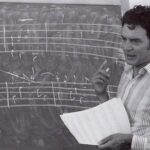
Ruggero Chiesa’s Legacy
Written by Peyman Shirali Translated by Mahta Mottaghi Since many years ago, I had the intention of writing an article on the Italian maestro Ruggero Chiesa and his musical life; but his ingenuity and the immense legacy, which is impressive for not only me, but also almost everyone who knows him properly, made it hard for me…
Read More
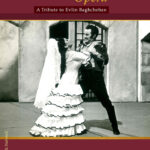
Rare documents of Tehran Opera Company published in Europe
The year 2020 marks the 10th anniversary of Evlin Baghcheban’s death. She played a crucial role to promote opera and choral music in Persia (Iran). Born to an Assyrian-French family in Turkey, she studied singing and piano at the Ankara State Conservatory. In 1950 Evlin married the Persian composer and fellow student Samin Baghcheban and moved to Tehran.

Gholam Reza Khan Minbashian: a pioneer in Iranian music (II)
Gholamreza Khan Minbashian taught courses such as organology, orchestration of military music and harmony based on the books which were translated from French into Persian with the help of Aliakbar Mozayyan-o-Dolleh (1846-1932).
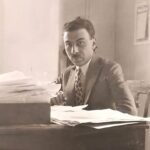
About Davoud Pirnia, the founder of “Golha” radio program
Davoud Pirnia, writer and musicologist was the founder of “Golha” (Flowers of Persian Song and Music) programs on Tehran Radio (1956-1966). He received his early education from his father, Hassan Pirnia (Moshir al-Douleh), and several tutors of the time (Taraghi, interview, July 1989) and continued his studies at Saint Louis School in Tehran and then in Switzerland and graduated in law. While studying law, Pirnia got acquainted with European classical music. Upon returning to Iran, he was employed by the Ministry of Justice and founded the Lawyers’ Guild. Then he was transferred to the Ministry of Finance and established the Department of Statistics in this ministry. Later, he became the head of the state inspection office at the Prime Ministry; he was, then, promoted to the position of the Deputy Prime Minister (Navab Safa, interview, August 1999)

Transition to Enlightenment: Six Lectures on Mozart’s String Quartets (3)
Wolfgang Amadeus Mozart, a musical prodigy of the Classical era, was deeply influenced by the intellectual currents of the Enlightenment. His exposure to Enlightenment ideas was multifaceted, shaped not only by the cultural milieu of his time but also by the relationships within his family and his own interactions with prominent figures of the Enlightenment. This exploration will delve into Mozart’s acquaintance with Enlightenment ideas through his father’s relationships and his own encounters with influential personalities of the era, including Christian Fürchtegott Gellert, Baron Melchior Grimm, Madame d’Epinay, and Joseph von Sonnenfels. Additionally, the essay will examine the impact of Joseph II’s reforms on Mozart’s life and artistic endeavors.
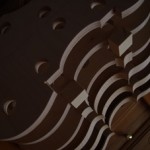
Violin’s inner mold, an essential factor in developing the idea of violin
A part of the secrets of the masterpieces from the golden era lies in the special design of the instruments, as a result of a profound insight to and awareness of the significance of the precise calculation of the various components of the object of arts being created, such as making a violin or a bow.

Farhad Poupel: The Voice of the Shahnameh in the Orchestras Around the World
In an era when almost no trace of contemporary Iranian music can be heard in international concert halls, except (so-called!) avant-garde works that owe their existence solely to the fashionable slogans of the “pseudo-intellectual” crowd who have seized the already meager resources for performing classical music from the true artists of the field, the numerous performances of Farhad Poupel’s works shine as a ray of hope for lovers of sincere musical art. Without resorting to trendy slogans, he has kept the flame of Iranian classical music alive purely through the power of his artistry.
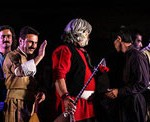
Quality Decline in Regional Music Festivals
Regional music festivals are organized to, firstly, introduce the music of different regions and, secondly, to support its performers. Regional music festivals are held in large cities for various reasons, including the availability of financial and executive facilities and the presence of an audience. However, the organization of these festivals has always been one of the challenging issues of ethnomusicology. The reason is that the presence of regional music performers in large cities places them in a context other than the context they would normally perform in their homes; consequently this change in situation leads to changes in the quality of their performance.

Women and the Music Environment in Iran
The life territory of the female-male relations in the Iranian cultural context is basically a domestic territory and not a social-living one in the labour and leisure domains. To prove this, it only suffices to consider the Iranian men’s viewpoints about women. For the Iranian men, there are three perspectives regarding the women: mother, sister and wife. Mother represents the emotional territory; sister represents the logical territory at home while wife represents the sexual territory.

From the Last Instrumentalist to the First Composer (II)
Rouhollah Khaleghi was the master of composing beautiful melodies. He was the premier of the course of history which was first established by Ali Naghi Vaziri and which improved the Iranian music from simply a gathering music to the classical music of the country. First efforts to compose independent and instrumental music can be also traced in Khaleghi’s works.